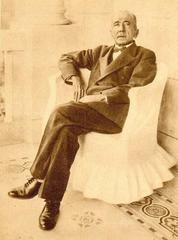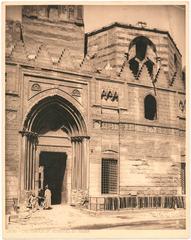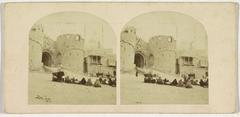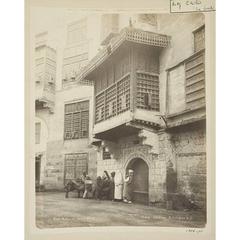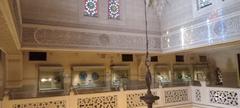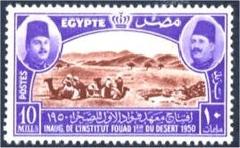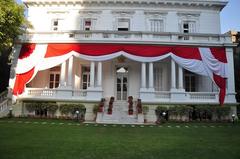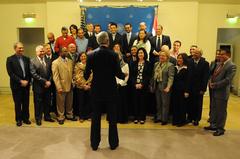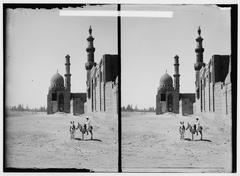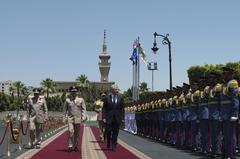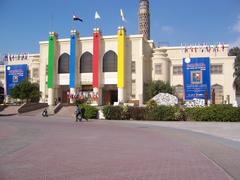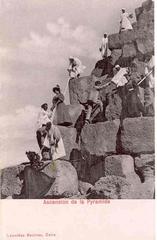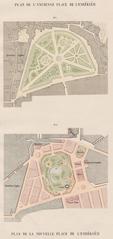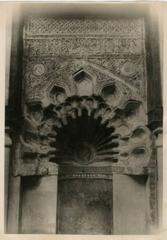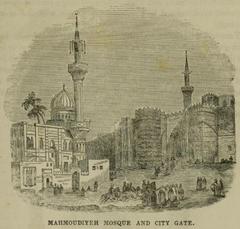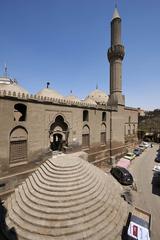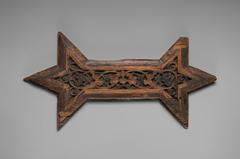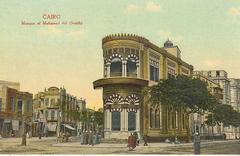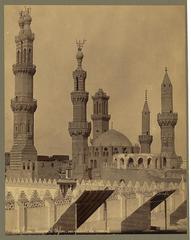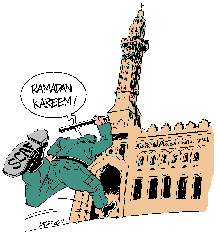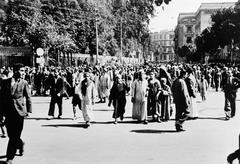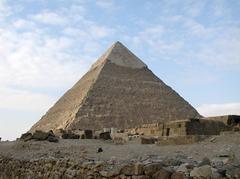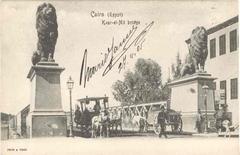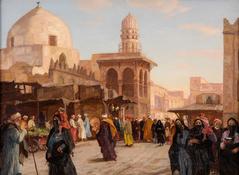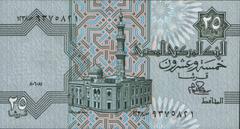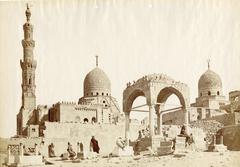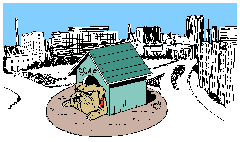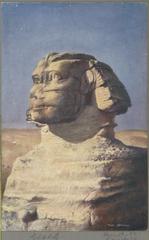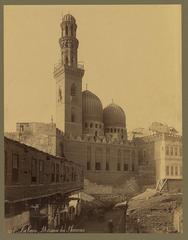Mahmud Al-Kurdi Mosque: Visiting Hours, Tickets, and Historical Significance in Cairo, Egypt
Date: 14/06/2025
Introduction
The Mahmud Al-Kurdi Mosque is a gem of Cairo’s Islamic architecture, located in the storied al-Darb al-Ahmar district. Built in 1395 CE by Amir Mahmud al-Kurdi, the mosque stands as a testament to the artistic and spiritual vitality of the Mamluk era. Beyond its function as a place of worship, the mosque serves as a window into the city’s medieval urban life, blending religious, educational, and funerary roles in a single, harmonious complex (Wikipedia, Local Guide to Egypt, Islamic Cairo Architecture).
Strategically situated near the Qasaba of Radwan Bey (Tentmakers’ Street) and within easy reach of iconic sites like Al-Azhar Mosque and Khan El Khalili bazaar, the Mahmud Al-Kurdi Mosque is an ideal starting point for exploring Cairo’s UNESCO-listed Islamic heart. This guide provides comprehensive information about its history, architecture, visiting hours, ticketing, accessibility, etiquette, and nearby attractions—ensuring a meaningful and respectful experience.
Historical Context
Mamluk Era and the Mosque’s Founder
Commissioned during the flourishing period of the Mamluk Sultanate, the Mahmud Al-Kurdi Mosque reflects the sophistication and ambitions of its patron, Amir Mahmud al-Kurdi, an esteemed ustadar (majordomo) under Sultan Barquq. The Mamluks were renowned for their monumental architecture, which often integrated religious, educational, and funerary functions. The mosque exemplifies these trends, serving as a key marker of Mamluk urban and artistic achievement (Islamic Cairo: Architecture, Culture, and Heritage).
Architectural Features
Layout and Spatial Organization
The mosque’s plan revolves around a central courtyard (sahn) bordered by arcades, providing light and ventilation. Ablution facilities are thoughtfully integrated, emphasizing ritual purity.
Mihrab and Minbar
The mihrab stands as the artistic centerpiece, adorned with polychrome marble, glazed tiles, and intricate muqarnas. Its geometric and floral motifs, coupled with Quranic inscriptions, showcase the decorative prowess of Mamluk craftsmen (V&A Museum: Mihrab of the mosque of Mamluk Amir Mahmud al-Kurdi, Cairo). The minbar, inlaid with ivory and mother-of-pearl, exemplifies the era’s fine woodwork.
Minaret and Façade
The mosque’s multi-tiered minaret is a striking urban landmark, combining stone and brickwork with ornate motifs. The grand entrance portal, characterized by pointed arches and ablaq masonry, is embellished with inscriptions that commemorate its founder and date of construction.
Interior Decoration
Inside, the mosque features elaborate stucco, wooden ceilings, and colored glass windows (qamariyya), filling the prayer hall with vibrant natural light.
Environmental Adaptations
Designed for Cairo’s climate, the mosque utilizes thick walls, high ceilings, and shaded courtyards for passive cooling, ensuring comfort throughout the year (Islamic Cairo: Courtyard and fountain).
Calligraphy and Epigraphy
Calligraphic inscriptions in thuluth and kufic scripts adorn the mosque, uniting religious devotion with artistic expression (Islamic Cairo: Calligraphy and arabesques).
Legacy
The Mahmud Al-Kurdi Mosque’s blend of innovation and decorative artistry has had a lasting influence on Islamic architecture in Cairo and beyond (Islamic Cairo: A Reflection of Islamic Civilization).
Visiting Information
Location and Accessibility
- Address: Al-Darb al-Ahmar district, south of Qasaba of Radwan Bey; accessible from Ahmad Maher Street (Trek Zone).
- Metro: Nearest station is Ataba (Line 2). From there, take a taxi or enjoy a 15–20 minute walk.
- Taxi/Ride-Sharing: Services like Uber and Careem are widely available (Lonely Planet).
- On Foot: The mosque is within walking distance of major attractions, making it ideal for exploring Islamic Cairo.
Visiting Hours
- Open: Daily, 9:00 AM – 5:00 PM.
- Note: Hours may vary during religious holidays. Confirm with the Ministry of Tourism and Antiquities for the latest updates.
Tickets and Entry
- Admission: Free for all visitors. Donations for mosque maintenance are welcome.
Facilities and Accessibility
- Restrooms: Limited; use nearby cafes or attractions.
- Mobility: The historic site features uneven pavements and narrow alleys; wheelchair access is limited.
Visitor Etiquette and Practical Tips
Dress Code
- Women: Cover hair with a scarf; wear long sleeves and ankle-length skirts or pants. A simple headscarf suffices (Egypt Tours Plus).
- Men: Long pants recommended; avoid sleeveless shirts.
- Shoes: Remove before entering the prayer halls.
Etiquette
- Maintain quiet and respectful behavior.
- Access to the prayer hall may be restricted during prayers.
- Eating and drinking are not permitted inside the mosque.
- Some areas may be gender-segregated during prayers.
Safety and Security
- The district is lively and well-patrolled. Exercise normal precautions with valuables (Lonely Planet).
- Rely on guides recommended by reputable agencies.
- Emergency contacts: police (122), ambulance (123), fire (180).
Special Events and Guided Tours
- Special Events: The mosque hosts special prayers and community gatherings during Ramadan and Eid. Expect higher visitor numbers and potential schedule changes.
- Guided Tours: Licensed local guides can provide valuable historical background and navigation assistance (Lonely Planet).
Photography Tips
- Allowed: In the courtyard and exterior; always seek permission inside, especially during prayer times.
- Best Times: Early morning or late afternoon for optimal light and fewer crowds.
- Note: Avoid flash and photographing worshippers without consent.
Nearby Attractions
- Khan el-Khalili Bazaar: 13-minute walk; famed for souvenirs and crafts.
- Al-Azhar Mosque: 11-minute walk; a center of learning and worship.
- Al-Azhar Park: 12-minute walk; panoramic city views.
- Sultan Al-Ghuri Complex: 9-minute walk; monumental architecture.
- Aqsunqur (Blue) Mosque: 11-minute walk; famous for tilework.
- Al-Hussein Mosque: 14-minute walk; major pilgrimage site.
Best Times to Visit
- Season: October–April (mild weather).
- Time of Day: Early morning or late afternoon.
- Religious Holidays: Expect busy periods and possible access restrictions during Ramadan and Eid.
Cultural and Religious Significance
The Mahmud Al-Kurdi Mosque is not only an architectural marvel but remains a spiritual hub for Cairo’s Sunni Muslim community. It is a center for communal prayers, Quranic education, and social events. During Ramadan and festivals, the mosque hosts special prayers, charity events, and vibrant gatherings, reflecting its enduring role in Cairo’s religious and social fabric (Egipto Exclusivo).
FAQs
Q: What are the Mahmud Al-Kurdi Mosque visiting hours?
A: Daily, 9:00 AM to 5:00 PM (check for updates during holidays).
Q: Is there an entrance fee?
A: No, entry is free; donations are appreciated.
Q: Are guided tours available?
A: Yes, through local tour operators.
Q: Is the mosque wheelchair accessible?
A: Accessibility is limited due to historic architecture.
Q: Can non-Muslims visit?
A: Yes, outside of prayer times and with appropriate dress and respect.
Visuals and Media
- High-resolution images of the mosque’s minaret, mihrab, and courtyard.
- Maps of Islamic Cairo highlighting the mosque’s location.
- Virtual tours and photo essays recommended for remote exploration.
Summary and Recommendations
The Mahmud Al-Kurdi Mosque is a must-visit for anyone interested in Cairo’s Islamic history and architecture. Its accessibility, central location, and proximity to other major sites make it an essential stop on any cultural itinerary. Observing local customs and etiquette enriches the visitor experience, while the surrounding district offers a vibrant backdrop of markets and monuments. Use resources like the Audiala app and local guides to deepen your understanding and appreciation of this remarkable site.
Sources and Further Reading
- Mahmud al-Kurdi Mosque - Wikipedia
- Local Guide to Egypt
- Islamic Cairo: Architecture, Culture, and Heritage
- V&A Museum: Mihrab of the mosque of Mamluk Amir Mahmud al-Kurdi, Cairo
- Egipto Exclusivo: Islamic Culture in Egypt
- Trek Zone: Mahmud Al-Kurdi Mosque, Cairo
- Lonely Planet: Things to Know Before Traveling to Cairo
- Ministry of Tourism and Antiquities: English Ticket Update
- Egypt Tours Plus: What to Wear in Cairo
- The Evolista: What to Wear in Egypt
